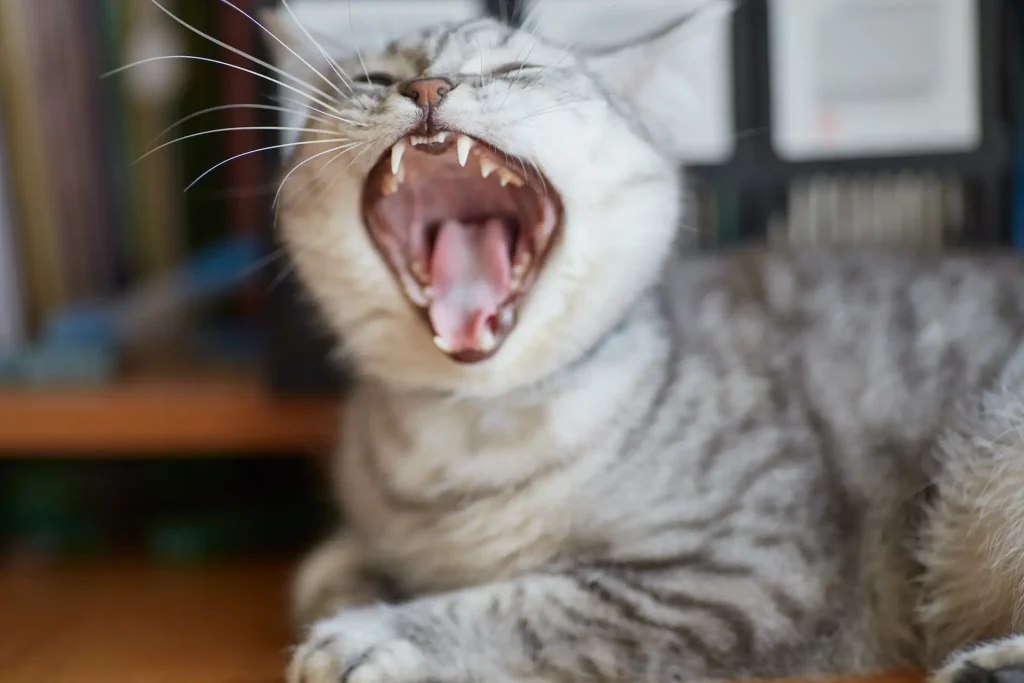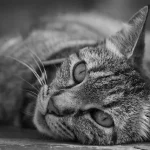Unraveling the Truth: Are Bengal Cats Aggressive? 8 Myths Busted!
Bengal cats, with their exotic appearance and wild ancestry, have captured the fascination of cat enthusiasts around the world. Yet, a lingering question often arises: Are Bengal cats aggressive? This article seeks to shed light on the truth behind this common misconception and delve into the complexities of Bengal cat behavior.
Unraveling the mysteries surrounding their temperament and addressing prevailing myths, we embark on a journey to understand whether aggression is indeed an inherent trait in these captivating feline companions. By exploring the factors that influence Bengal cat behavior and dispelling myths, we aim to provide a comprehensive understanding of these magnificent creatures and offer insights into responsible ownership to foster harmonious relationships with our Bengal friends.
So, let’s delve into the intriguing world of Bengal cats and uncover the truth: Are Bengal Cats Aggressive?
Read More Do Bengal Cats Shed? Everything You Need to Know
8 Facts to Know about Are Bengal Cats Aggressive?
Are Bengal cats aggressive? Get the truth behind this myth! Discover 8 essential facts about Bengal cat behavior and learn how to foster a harmonious bond with these mesmerizing feline companions.
Understanding Bengal Cat Behavior
Wild Ancestry Influence
The Bengal cat’s allure stems from its exotic heritage, as it is a result of crossing domestic cats with the Asian Leopard Cat. This wild ancestry can influence certain behavior traits in Bengal cats, but it’s essential to understand the distinction between natural instincts and aggression.
Instinctive Traits and Hunting Skills
Bengal cats possess strong hunting instincts, which can manifest in their playfulness. Understanding the difference between playful behavior and true aggression is crucial for interpreting their actions correctly.
Read More 7 Neutering Behavior Change in Cats
Factors Affecting Bengal Cat Behavior
Early Socialization and Training
Early socialization is vital in shaping a Bengal cat’s behavior. Positive experiences during their formative weeks can significantly impact their temperament and ability to adjust to various situations.
Environment and Stimulation
Providing an enriched environment with ample mental stimulation is essential for Bengal cats. Ensuring they have access to toys, climbing spaces, and interactive playtime helps prevent boredom-related issues.
Read More The Peculiar Puzzles of Cat Drooling
Signs of Aggression in Bengal Cats
Types of Aggressive Behavior
Bengal cats may display different types of aggression, such as territorial aggression, fear-related aggression, and redirected aggression. Understanding these categories can aid in identifying and addressing their behavior.
Identifying Aggressive Body Language
Recognizing aggressive body language cues, such as tail postures and vocalizations, is crucial in deciphering a Bengal cat’s emotional state and intentions.
Read More 10 Fascinating Facts About the Marbled Bengal Cat
Addressing Aggressive Behavior in Bengal Cats
Seeking Professional Advice
If a Bengal cat exhibits persistent aggressive behavior, seeking professional advice from a veterinarian or cat behavior specialist can provide valuable insights and guidance.

Implementing Behavior Modification Techniques
Positive reinforcement training, desensitization, and counter-conditioning are effective methods to address aggression issues and promote positive behaviors.
Read More Unraveling the Mystique of Silver Bengal Cats
Common Misconceptions About Bengal Cats
Aggression vs. Playfulness
It’s essential to differentiate playful behaviors from true aggression, as Bengal cats are often just engaging in playful antics.
Individual Personality Variations
Bengal cats, like all animals, have individual personalities. Their behavior may vary, depending on genetics, environment, and early experiences.
Read More Why are Bengal Cats Illegal in NYC?
Responsible Ownership and Care
Providing a Suitable Environment
Creating a safe and stimulating environment, whether indoors or outdoors, is crucial for a Bengal cat’s physical and emotional well-being.
Enrichment Activities to Prevent Aggression
Engaging Bengal cats with interactive toys and providing vertical spaces can satisfy their natural instincts and prevent aggression stemming from boredom.
Read More Are Bengal Cats Friendly? Unraveling the 10 Reasons
When to Seek Professional Help
Persistent and Uncontrolled Aggression
Recognizing the severity of aggressive behavior and seeking professional help promptly can prevent escalation and ensure a safe living environment.
Safeguarding Family Members and Other Pets
Implementing safety measures can protect family members and other pets from potential aggressive encounters and maintain a harmonious home.
Read More Are Bengal Cats Good Pets? Pros and Cons of Owning a Bengal Cat
Stories from Bengal Cat Owners
Positive Experiences with Bengal Cats
Cat owners share heartwarming stories of bonding, companionship, and the joyful personalities of their Bengal cats.
Challenges Faced and Overcome
Owners also recount challenges they’ve faced with behavioral issues and how they’ve worked together to find solutions and strengthen their bond.
Read More Why Are Bengal Cats Illegal? Understanding the Reasons Behind the Restrictions
FAQ for Are Bengal Cats Aggressive?
Are Bengal cats aggressive more than other breeds?
While Bengal cats may exhibit playful and energetic behavior due to their wild ancestry, they are not inherently more aggressive than other breeds. Proper socialization and a stimulating environment can foster positive behavior in Bengal cats.
How can I distinguish between playful behavior and aggression in my Bengal cat?
Playful behavior in Bengal cats often involves interactive play, chirping, and pouncing. Aggression, on the other hand, may be accompanied by hissing, growling, and aggressive body language like flattened ears and bushy tail.
Can early socialization prevent aggression in Bengal cats?
Yes, early socialization is crucial for Bengal cats. Introducing them to various people, animals, and environments during their formative weeks can help reduce fear-related aggression and promote confident and well-adjusted behavior.
What should I do if my Bengal cat displays signs of aggression?
If your Bengal cat exhibits aggressive behavior, consult with a veterinarian or a cat behavior specialist. They can help identify the underlying cause of the aggression and provide guidance on behavior modification techniques.
Can aggressive behavior in Bengal cats be managed through training?
Yes, behavior modification techniques like positive reinforcement training, desensitization, and counter-conditioning can help manage aggressive tendencies in Bengal cats. Consistent training and patience are key to promoting positive behaviors and building trust with your feline companion.
Conclusion
In conclusion, while Bengal cats may have wild ancestry, they are not inherently aggressive. Understanding their unique traits, providing a nurturing environment, and investing in proper training and socialization can foster a loving and harmonious relationship with these captivating feline companions.
Responsible ownership plays a pivotal role in embracing the true nature of Bengal cats and celebrating their extraordinary qualities. With the right care and attention, Bengal cats can become cherished members of their human families, bringing joy and delight into their lives.





